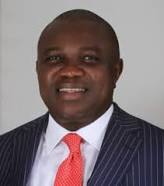
LAGOS has enormous potential for economic growth. Despite not being an oil producing state, it remains one of the few states in the country that is self sustaining. Its growing economy derives its strength from commercial and financial activities. Lagos accounts for about 20.2 percent of Nigeria’s Gross Domestic Product (GDP) and 50.7 percent of non-oil GDP as well as being home to about 2,000 industrial complexes, 10,000 commercial ventures and 22 industrial estates. Aside this, Lagos alone consumes about 45 percent of petroleum products in the country.
It is in order to effectively leverage on the potentials of the Lagos economy for optimal efficacy that the state governor, Mr. Akinwunmi Ambode, made the establishment of the Office of Overseas Affairs and Investment, generally known as Lagos Global, one of his earliest tasks.
The Office, which was set up to help achieve the vision of Lagos State as Africa’s Model Megacity and Global Economic and Financial Hub that is safe, secure, functional and productive, is designed to be a one-stop shop for foreign investors. Drivers of the Lagos Global initiative are to, among others, initiate, formulate and evaluate policies relating to the promotion of inward and outward investments, liaise with embassies, chambers of commerce, ministries and agencies on foreign relations, promote State export potentials, facilitate foreign direct investment and inter-ECOWAS/ African Union commerce and trade as well as facilitate export promotion, fairs and exhibitions to showcase the economic potentials of Lagos.
Since inception, Lagos Global has been providing a boost for investment drive as well as the general growth of the state’s economy. Recently, German manufacturing firm, the Knauf Group International, expressed its readiness to commence work on a N14billion manufacturing firm in the state. This came to the fore when the German Ambassador, Michael Zenner, led a group of German diplomats and investors on a courtesy visit to Governor Akinwunmi Ambode. Other local and international investors have since been signifying their interest in doing business in Lagos. In recent times, the state government has played host to investors from Dubai, United States of America, Namibia, Middle East, Europe as well as our own Dangote Group of Companies. With the state already having various investment commitment in the region of about N500 billion from both local and foreign interests, it is safe to affirm that Lagos would surmount the present global economic downturn.
It is, however, important to stress that it is in entrenching the right culture of taxation that the economy of the state can thrive better. All over the world, governments rely on taxes paid by the citizens to finance their activities. Revenue accrued from tax is used to provide jobs, upgrade public infrastructure and provide medical care among others. Taxation helps in maintaining the stability of any country’s economy.
The significance of taxation to the development of any economy cannot be over-stressed as it is a major tool for socio-economic advancement. In Lagos state, it is rather regrettable that only about 3million Lagos residents out of a taxable adult population of about eight million that pay their taxes. The reality of this development is that only three million people bear the burden of over 20 million Lagosians. It is crucial to stress that, with dwindling oil revenue, the only way forward for a growing mega city like Lagos, where peoples’ expectations of government are always high, is to establish an efficient system of taxation.
This is why the recent announcement that the state government had widened its tax net to include more groups and individuals is a welcome one. Accordingly, the state government has started the process of overhauling the informal sector with a view to ensuring voluntary compliance by all tax payers. Towards this end, three categories of tax payers, namely market men/women, artisans, micro, small and medium-scale enterprises and domestic staff had been classified in the sector. They are expected to remit one per cent of their earnings to government’s coffers.
To ensure optimal success of the new tax system, in addition to the traditional bank portal, new payment platforms, including POS, online and other electronics multi-modal system had been introduced to make it easier for residents to remit their taxes. Similarly, a review of the tax Form A of the Personal Income Tax Act had also been carried out while the guide notes are to be translated into more indigenous languages and pidgin for effective understanding. In order to guide against corruption among State’s Tax Officers, stringent disciplinary measures have been put in place.Being a melting point of people from diverse parts of the world as well as the commercial and economic hub of West Africa, Lagos has peculiar infrastructure needs. There is, perhaps, no other state in the country that contends with as much pressure on its infrastructure as Lagos.
The financial force required to promote Lagos infrastructure to the standard of developed mega cities of the world is, undoubtedly, enormous. This is why taxable Lagos residents must partner with the state government through prompt and voluntary payment of taxes in order to attain the Lagos of our collective dream. This is the path that is toed by all advanced democracies of the world. This is the only way for Lagos to achieve a stable and prosperous economy. This is the right thing to do.
SUN
END

Be the first to comment